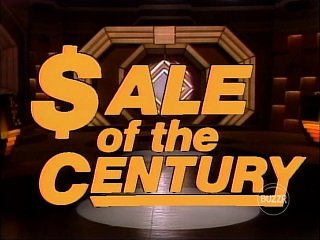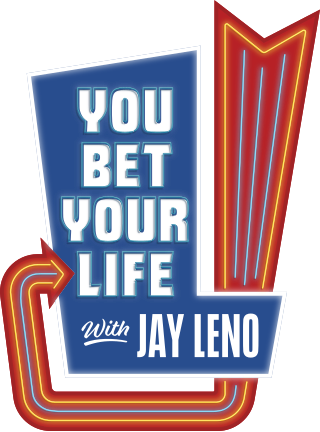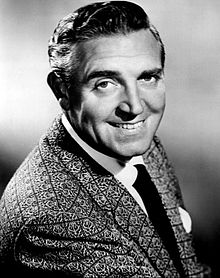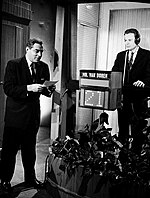
A game show is a genre of broadcast viewing entertainment where contestants compete for rewards. The shows are typically directed by a host, who explains the rules of the game as well as commentating and narrating where necessary. The history of the game shows dates back to the late 1930s when both radio and television game shows were broadcast. The genre became popular in the United States in the 1950s, becoming a regular feature of daytime television.

Match Game is an American television panel game show that premiered on NBC in 1962 and has been revived several times over the course of the last six decades. The game features contestants trying to match answers given by celebrity panelists to fill-in-the-blank questions. Beginning with the CBS run of the 1970s, the questions are often formed as humorous double entendres.
The year 1958 in television involved some significant events. Below is a list of television-related events during 1958.

The 1950s quiz show scandals were a series of scandals involving the producers and contestants of several popular American television quiz shows. These shows' producers secretly gave assistance to certain contestants in order to prearrange the shows' outcomes while still attempting to deceive the public into believing that these shows were objective and fair competitions. Producers fixed the shows sometimes with the free consent of contestants and out of various motives: improving ratings, greed, and the lack of regulations prohibiting such conspiracy in game show productions.

Bess Myerson was an American politician, model, and television actress who in 1945 became the first Miss America who was Jewish. Her achievement, in the aftermath of the Holocaust, was seen as an affirmation of the Jewish place in American life. She was a heroine to parts of the Jewish community, where "she was the most famous pretty girl since Queen Esther."

The $64,000 Question was an American game show broadcast in primetime on CBS-TV from 1955 to 1958, which became embroiled in the 1950s quiz show scandals. Contestants answered general knowledge questions, earning money which doubled as the questions became more difficult. The final question had a top prize of $64,000, hence the "$64,000 Question" in the show's title.

Truth or Consequences is an American game show originally hosted on NBC radio by Ralph Edwards (1940–1957) and later on television by Edwards (1950–1954), Jack Bailey (1954–1956), Bob Barker (1956–1975), Steve Dunne (1957–1958), Bob Hilton (1977–

Sale of the Century is an American television game show that originally debuted on September 29, 1969, on NBC daytime. It was one of three NBC game shows to premiere on that date, the other two being the short-lived game shows Letters to Laugh-In and Name Droppers. The series aired until July 13, 1973, and a weekly syndicated series began that fall and ran for one season.

I've Got a Secret is an American panel game show produced by Mark Goodson and Bill Todman for CBS television. Created by comedy writers Allan Sherman and Howard Merrill, it was a derivative of Goodson–Todman's own panel show, What's My Line?. Instead of celebrity panelists trying to determine a contestant's occupation, however, as in What's My Line, the panel tried to determine a contestant's secret: something that is unusual, amazing, embarrassing, or humorous about that person.

You Bet Your Life is an American comedy quiz series that has aired on both radio and television. The original version was hosted by Groucho Marx of the Marx Brothers, with announcer and assistant George Fenneman. The show debuted on ABC Radio on October 27, 1947, moved to CBS Radio debuting October 5, 1949, and went to NBC-TV and NBC Radio on October 4, 1950. Because of its simple format, it was possible to broadcast the show on both radio and television but not simultaneously. Many of the laughs on the television show were evoked by Groucho's facial reactions and other visual gimmicks; the two versions were slightly different. The last episode in a radio format aired on June 10, 1960. The series continued on television for another year, recording a season on September 22, 1960 with a new title, The Groucho Show.
The Joker's Wild is an American television game show that aired at different times between 1972 and 2019. In the show, contestants answer questions based on categories determined randomly by a mechanism resembling a slot machine. The show's title refers to the game's slot-machine mechanism also having jokers.

Twenty-One is an American game show originally hosted by Jack Barry that initially aired on NBC from 1956 to 1958. Produced by Jack Barry-Dan Enright Productions, two contestants competed against each other in separate isolation booths, answering general-knowledge questions to earn 21 total points. The program became notorious when it was found to be rigged as part of the 1950s quiz show scandals, which nearly caused the demise of the entire genre in the wake of United States Senate investigations. The 1994 film Quiz Show is based on these events. A new version of the show aired on NBC in 2000 with Maury Povich as host.
Daniel Enright was an American television producer, primarily of game shows. Enright worked with Jack Barry from the 1940s until Barry's death in 1984. They were partners in creating programs for radio and television. Their company was called Barry & Enright Productions.

Tic-Tac-Dough is an American television game show based on the paper-and-pencil game of tic-tac-toe. Contestants answer questions in various categories to put up their respective symbol, X or O, on the board. Three versions were produced: the initial 1956–59 run on NBC, a 1978–86 run initially on CBS and then in syndication, and a syndicated run in 1990. The show was produced by Barry & Enright Productions.

Who Wants to Be a Millionaire? is a British television quiz show, created by David Briggs, Steven Knight and Mike Whitehill for the ITV network. The programme's format has contestants taking on multiple-choice questions based upon general knowledge, winning a cash prize for each question they answer correctly, with the amount offered increasing as they take on more difficult questions. If an incorrect answer is given, the contestant will leave with whatever cash prize is guaranteed by the last safety net they have passed, unless they opt to walk away before answering the next question with the money they had managed to reach. To assist in the quiz, contestants are given a series of "lifelines" to help answer questions.

The Price Is Right is an American game show produced by Mark Goodson-Bill Todman Productions, wherein contestants placed successive bids on merchandise prizes with the goal of bidding closest to each prize's actual retail price without surpassing it. The show was a precursor to the current and best-known version of the program, which premiered in 1972 on CBS's daytime schedule. It makes The Price Is Right one of only a few game show franchises to have aired in some form across all three of the Big Three television networks.

Who Do You Trust? is an American television game show.
A game show is a type of radio, television, or internet program in which contestants, television personalities or celebrities, sometimes as part of a team, play a game which involves answering trivia questions or solving puzzles, usually for prizes. Game shows are usually distinguishable from reality television competition shows, in which the competition consumes an entire season of episodes; in a game show, prizes can typically be won in a single match. Beginning with the first five-figure and six-figure game show jackpots in the mid-1950s, a succession of contestants on various quiz shows of the era each set records. Teddy Nadler of The $64,000 Challenge, the highest-scoring contestant of the 1950s era, was not surpassed until 1980, when Thom McKee won $312,700 on Tic-Tac-Dough. Between 1999 and 2001, during a brief boom in high-stakes game shows, the record was broken six times. Both the 1955–1958 and 1999–2001 eras of rapidly set and broken records were driven primarily by one-upmanship between the networks each trying to secure bragging rights and ratings by inflating their prize offerings, rather than the merits of the contestants themselves. American daytime television has historically had smaller prize budgets for game shows that air in that daypart.

The Big Surprise is a television quiz show broadcast in the United States by NBC from October 8, 1955, to June 9, 1956, and from September 18, 1956, to April 2, 1957. It was hastily created by NBC in response to the ratings success of The $64,000 Question, which had premiered on CBS in summer 1955 and almost instantly became a hit. The Big Surprise offered a grand prize of $100,000.

Albert Freedman was an American television producer who was involved with the 1950s quiz show scandals. He became a central figure in the cheating scandals and was the first person indicted. He was arrested for perjury after lying about giving contestants questions, and then recanted his grand jury testimony which led to the arrests of 14 former contestants. After the quiz show investigations concluded, Freedman moved to London to work in pornography publications.

















